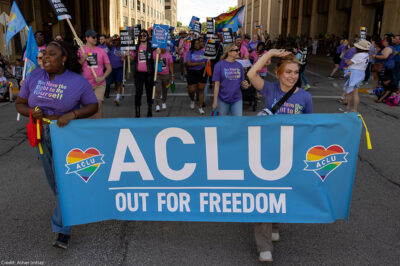Brian Prowel, a gay man, worked for Wise Business Forms, a producer and distributor of business forms, at its Butler, Pennsylvania facility. The work environment was intensely “blue-collar macho.” In stark contrast to the other men at Wise, Brian had a high voice, did not curse, and talked about things like art, music, interior design, and décor. He walked and carried himself in an effeminate manner, was well-groomed and wore dressy clothes.
For this, he was repeatedly harassed by coworkers. One coworker often called him “Princess” and once, a pink, light-up, feather tiara with a package of lubricant jelly was left at his worksite. In a similar vein, coworkers made comments such as: “Did you see what Rosebud was wearing?”; “Did you see Rosebud sitting there with his legs crossed, filing his nails?” Other coworkers called him “faggot”. Prowel reported many of these matters to his supervisor but nothing was done. Eventually, after several years of this harassment, Wise fired Prowel, claiming “lack of work.”
Prowel sued in federal court under federal and state laws that protect workers against sex discrimination. (Neither federal nor Pennsylvania law prohibits discrimination based on sexual orientation.) Prowel’s central claim is that he was harassed at work and ultimately fired because Wise and its workers simply could not abide his noncompliance with gender stereotypes. The federal district court threw out his lawsuit, ruling that Prowel was harassed because of his sexual orientation and that laws banning sex discrimination do not protect against such harassment.
The 3rd Circuit Court of Appeals thankfully reversed that decision, noting that to uphold it would create the indefensible position that an effeminate straight man may bring a gender stereotyping claim under sex discrimination laws while an effeminate gay men could not. The court acknowledged that the line between sexual orientation discrimination and sex discrimination can be difficult to draw, but said that Prowel was entitled to his day in court to prove that he was harassed not because he is gay but because he did not conform to Wise’s view of how a man should look, speak, and act.
This case reinforces the need for the Employment Non-Discrimination Act (ENDA), the bill now in Congress that would protect all LGBT Americans against workplace discrimination based on their sexual orientation or their gender identity or expression. No gender variant individual should have to go through such legal hoops to seek justice. The ACLU submitted a friend-of-the-court brief in support of Prowel and is working on passage of ENDA.


